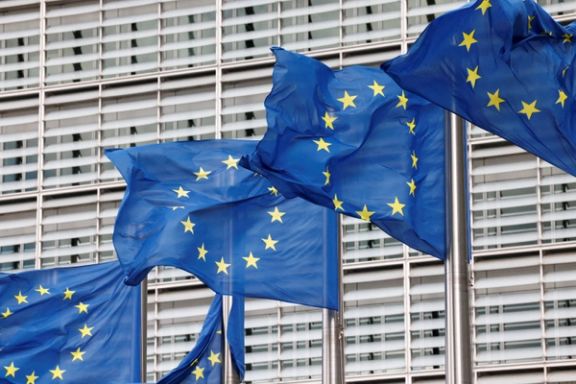US And E3 ‘Pretty Much Aligned’ Over Iran

Iran Saturday criticized France, Germany, and the United Kingdom for taking to the United Nations Security Council Tehran’s reported supply of drones to Russia.

Iran Saturday criticized France, Germany, and the United Kingdom for taking to the United Nations Security Council Tehran’s reported supply of drones to Russia.
Nasser Kanaani, the foreign ministry spokesman, said the claims over armed drones were “false and baseless” and called for “an immediate end to the war in Ukraine through a political process.” The spokesman recalled the supplies from Europe – principally Germany – that enabled Saddam Hussein’s regime to produce chemical weapons used against Iran in the 1980-88 Iran-Iraq war.
The souring of relations between Iran and the ‘E3’ comes as Europeans submitted a letter Friday to the current United Nations Security Council (UNSC) President, Gabon Ambassador Michel Biang, calling for a UN secretariat probe into reports that Russia has used Iranian-made drones (UAVs, unmanned aerial vehicles) in the Ukraine war.
Both the E3 and the United States have argued that any such supply would breach UNSC Resolution 2231, which endorsed the 2015 Iran nuclear agreement, the JCPOA (Joint Comprehensive Plan of Action). “Open source reporting suggests that Iran intends to transfer yet more UAVs and, potentially, ballistic missiles to Russia… a significant escalation,” the letter read.
While drones used by Russia have played a minor role in the war, their deployment against civilian targets has been highlighted by Ukraine in its call for greater military support from the US and EU, while the US has argued that Iran could supply other hardware. Washington and EU supplies of weapons to Ukraine of over $20 billion has enabled Ukraine to push back against Russia’s invasion.
Friday’s joint press conference in Washington with Secretary of State Antony Blinken and French foreign minister Catherine Colonna confirmed the Ukraine crisis bringing Washington and the E3 closer together. With Germany generally taking a more cautious line against Russia and Britain facing another domestic leadership contest, France is taking a more prominent role.
The E3 letter could be a first step to moving ‘snapback’ sanctions on Iran, a provision of the JCPOA. The E3 have accepted the US cannot do this as it left the JCPOA in 2018 and imposed ‘maximum pressure’ sanctions on Iran in violation of the 2015 agreement.
But the procedures, more so the consequences, of such a move are unclear. Firstly, the argument that Iran supplying drones to Russia violates the JCPOA rests on a clause in Resolution 2231, and linked US letter to the UNSC, that was primarily intended to restrict types of arms going into, rather than out of, Iran. Such transfers, the resolution says, require UNSC approval.
Secondly, Iran has already argued its expansion since 2019 of its nuclear program beyond JCPOA limits does not violate the agreement because of a provision that any violation of the agreement by other parties – for example by the US imposing ‘maximum pressure’ sanctions in 2018 – would constitute “grounds [for Iran] to cease performing its commitments under the JCPOA.” The same argument could be made over drones.
The ‘snapback’ procedure
If the E3 does move for snapback, the procedure outlined in the JCPOA gives a 30-day period for any JCPOA signatory to move a resolution opposing the re-introduction of international sanctions. This, presumably, could be vetoed by France or Germany, bringing the sanctions back into effect but with Russia and China refusing to accept them, perhaps citing as a precedent the US breaking USNC 2231 in 2018.
Given Europe’s trade with Iran has fallen dramatically under US ‘maximum pressure’ sanctions – which threaten punitive US action again any third party dealing with Iran – renewed European sanctions would have little economic impact.
Some analysts also argue a debate highlighting violations of UN resolution would alienate countries like India and China already uneasy with the US and EU approach to the Ukraine crisis, thereby deepening ties within an ‘Asian bloc’ led by Moscow and Beijing.
Blinken said Friday that the US remained committed to revive the JCPOA, an effort he distinguished from “Iran’s activities, Iran's aggression, whether it’s in the Middle East or beyond.” But is its widely suggested that any escalation through the UN, by the US or the E3, would doom efforts to restore the 2015 agreement. Colonna said at Friday’s press conference that France and the US were “pretty much aligned” on Iran.